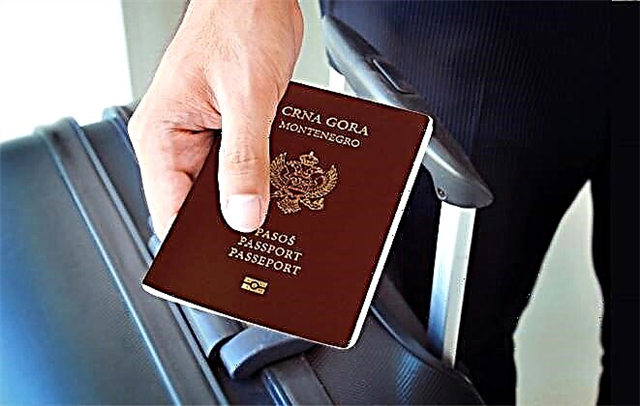Health is the most important gift to cherish. In any case, this is the opinion in German society. Caring for the state of your body and peace of mind is here at the genetic level. Even at school, the younger generation receives the first knowledge of what proper nutrition is, and gets involved in sports. Nevertheless, a couple of decades ago, according to a study conducted by one of the country's leading insurance companies, only 14% of local residents adhered to the postulates of a healthy lifestyle. Today a healthy lifestyle in Germany is a trend, a trend, an enduring fashion.
How do Germans feel about smoking?
The first smoking ban in Germany appeared in 1975. At that time, local television and radio channels were limited in their ability to advertise tobacco products on the air. Further, in the 80s, smoking was banned on airplanes and on the territory of airports.
A law passed in 2007 finally confirmed the government's intention to instill healthy habits in local burghers and made it impossible for them to smoke in train stations and other public places in general.
Society accepted this measure without much protest. Even experienced smokers calmly resigned themselves to the fact that now they will have to smoke on the street in front of a restaurant or in a special room. And while the law is ubiquitous today, each land has the discretion to remove or impose restrictions.
So, the federal document says that smoking is prohibited in:
- public gathering places of citizens;
- buildings of federal significance and other departments;
- municipal transport.
Cafes, restaurants and bars have the right to independently decide whether you can smoke on their territory or not. Special signs warn about this. If the owner of the establishment does not want to lose the smoking part of the customers, he must divide the room into two zones, separating those who still adhere to a healthy lifestyle from those who are not averse to pampering themselves with a cigarette or two. But there are also bars that work exclusively for smokers.
Violators of law and order will face an administrative penalty in the amount of 5 to 1 thousand euros. This, however, does not prevent you from meeting a large number of people who smoke on the streets, including women and adolescents.
The sight of cigarette butts on the sidewalks will also be a big disappointment. German cities of tourist importance are particularly affected by this. The incentive to quit smoking is two factors:
- horrifying pictures of spoiled lungs on cigarette packs;
- the cost of tobacco products, the price of which here reaches 10-15 euros.
It is also noteworthy that many, even the most ardent adherents of anti-smoking trends, still allow themselves to relax on vacation and smoke one or two cigarettes with a glass of wine or beer. The explanation is very easy - the Germans work quite a lot, as evidenced by their economy. But rest and work are two different parts of life. Therefore, it is not a sin to pamper yourself with small joys of life after hard work. What other bans for smokers are, read the publication "Restrictions and bans for smokers in Germany".
Attitude to sports
Sixty percent of Germans consider it necessary to take care of their health, eat right, play sports, and allow themselves to get enough sleep. Anyone who does not adhere to this principle goes against society.
The first thing that the eye of a foreigner notices upon arrival is the sportiness of the German nation. If you happen to visit, say, Berlin, be sure to visit one of the city parks. Every half a minute you will see joggers, cyclists, rollerblading citizens of all ages overtaking you.
The bicycle is a separate affection for every German citizen. Regardless of whether a person smokes or not, what he eats and drinks, everyone here drives this two-wheeled vehicle. More about bicycles in Germany here.
It is a little strange, of course, for a Russian man in the street to see a girl in heels or a man in a formal suit and tie, turning the pedals, but for the Germans themselves, this way of movement is more than ordinary and natural.
The Germans do not just pay tribute to fashion, they enjoy this pastime: the inhabitants of the Federal Republic of Germany are very fond of specialized attributes that make driving or other sports activities more comfortable. This includes special gloves, shoes, sportswear and even water bottles.
Jogging has long been a daily activity, too. For a German, running in the morning or in the evening in the park or around the city is like brushing our teeth for us.
Attendance at fitness workouts, saunas, and all sorts of wellness programs is also considered common.
Sports education at school cannot be ignored either. In the classroom, the younger generation learns several things at once:
- eat properly;
- observe the daily routine;
- allocate time so that at least three hours a day are allocated for sports;
- know how life-threatening the excessive consumption of unhealthy foods and alcohol is.
Local swimming pools, stadiums and sports grounds are just as crowded. Ice rinks are especially fond of. Moreover, here they are available at any time of the year.
This love of sports cannot but affect the life expectancy of burghers: on average, 82 years for women and 77 years for men. In Europe, this figure is one of the highest.
What kinds of sports do the Germans prefer?
Today Germany is one of the five most sporting nations in the world for summer sports and among the top three for winter sports. The most popular summer activities for Germans are:
- football,
- Athletics,
- tennis,
- swimming,
- rowing,
- Horseback Riding,
- field hockey,
- handball,
- Beach volleyball,
- shooting.
But in the winter they prefer to do:
- biathlon,
- bobsled
- mountain skiing,
- ice skating.
- hockey.
Football in Germany is a national sport. The German national football team has won four world championships and is today one of the strongest teams in the world.
Power features
Eating habits are an important part of the life of any resident of the country. We all know, and many have even tried, the famous Bavarian sausages, German bread, which for the burghers themselves is a national treasure, and not just a food product. Nevertheless, with such a rich local cuisine, most Germans prefer to eat healthier food.
In shops almost everywhere you can find food products marked with the BIO label. But it would be untrue to say that all Germans shop in such places: the cost of goods in them is not so low.
To pamper yourself with real "clean" vegetables and fruits, the Germans organize weekly fairs. On a certain day, farmers come to the town square and bring their own produce. And although the price of these products is no less than in a supermarket, they are natural and without chemicals.
Cars
The policy in relation to road transport does not lag behind the principles of a correct lifestyle. In order to visit the central part of the city in your car and park somewhere, you will have to get a green or at least yellow sticker. They will inform others that your vehicle meets the current environmental standards in the country.
If a red sticker is attached to the glass of the car, it will be prohibited from entering cities and ecological zones.This prescription is part of a government program and once again proves that concern for their health, environment and ecology is in the minds of the Germans, and not just on paper.
The first ecological zones appeared here in 2008. They oblige all drivers who want to enter their territory to have special markings. The cost of such a sticker is 5-15 euros. You can get it in special centers of technical supervision. The first three zones appeared in Hanover, Berlin and Cologne. These rules are valid for foreign cars too.
By the way, auto auctions are very popular in Germany, where you can buy a car profitably. You can read about them in detail in our article.
Health care system
The key direction of government policy is to preserve the health of citizens. A huge contribution to its implementation is made by funding all kinds of research in the medical field. This explains why German clinics hold leading positions in terms of technical equipment and quality of service not only in Europe, but all over the world.
In general, medicine in the country is divided into three components:
- primary - you can sign up for a consultation at the level of a family doctor;
- secondary - referral to narrow specialists;
- tertiary - treatment in specialized clinics.
To get medical help, a German resident must have health insurance. It allows you to independently choose a medical institution and a specialist with whom the patient will be treated. The Germans have a choice: they can purchase a public policy or a private one. The difference will be in the monthly contributions that will need to be paid from your salary. Poor strata of the population are provided with such insurance by the state.
How you can get help and what rights the insurance policy gives you, read our article "Medicine in Germany"
Pregnancy and childbirth
Statistics claim that Germany has the lowest fertility rate in all of Europe. Perhaps this is due to the fact that Germans strive to give birth to their first child after thirty years. This circumstance is due to the desire to start getting an education, build a career and secure income. And this at a time when the German state is one of the most favorable places on the planet for starting a family.
After the test is positive, the time comes for the first visit to the gynecology. It usually occurs between 5-7 weeks of gestation. It will be interesting to know that the countdown here is not from the estimated date of conception, but from the date of the last menstruation.
Then you need to visit the gynecologist every 4 weeks. All visits are accompanied by a collection of tests, colposcopy, ultrasound examination. When day X comes, the woman goes to the hospital, and the doctor who was on the shift helps her baby to be born: here they do not agree in advance with the medical institution, and even more so they do not choose obstetricians. But to find a visiting nurse who will come home after discharge, a woman must independently.
Summarizing
We must pay tribute to the Germans, who, with all their desire to have a fun, tasty and satisfying vacation, still do not forget to keep themselves in shape and take care of their health. What you need to know about healthy lifestyle in this country:
- smoking in public places is officially prohibited. At the same time, all establishments have separate premises for smokers, and the federal states are endowed with the right to independently regulate this prescription;
- sport is in the first place in the life of a German burgher. Great fondness for cycling and jogging;
- many residents prefer to buy so-called organic products not in supermarkets, but in specialized stores;
- in the Federal Republic of Germany, a large number of eco-zones have been created, which can only be entered by car with special stickers;
- medical care is provided on the basis of an insurance policy that every citizen must have.
Taking care of their health has become a lifestyle for the Germans, which they adhere to with great passion.











